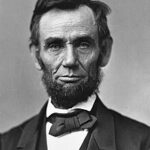President Abraham Lincoln authorized military tribunals for civilian trials during the Civil War. This controversial decision fundamentally altered the American justice system. ⚠️ The practice violated traditional separation between military and civilian courts.
The Military Tribunals Decision
Lincoln implemented military tribunals for civilian trials in 1862. The decision targeted Confederate sympathizers and suspected traitors. Military courts operated without standard constitutional protections. Defendants faced trial without jury rights or proper legal representation. The president justified this action as wartime necessity.
Constitutional Violations
Military tribunals for civilian trials bypassed Fifth and Sixth Amendment protections. 📊 Over 13,000 civilians faced military prosecution during the war. The tribunals denied habeas corpus rights to defendants. Critics argued this violated fundamental democratic principles. Legal scholars questioned the constitutionality of these proceedings.
The Lincoln Assassination Trials
The most controversial application involved Lincoln’s assassination conspirators. Military tribunals tried eight defendants in 1865. Four received death sentences, including Mary Surratt. ⚖️ The trials lacked proper civilian court procedures. Defense attorneys had limited time to prepare cases.
Impact:
The military tribunals for civilian trials created lasting constitutional controversies. This decision fundamentally challenged American legal principles. 🔥 The practice sparked intense political and legal debates.
Immediate Constitutional Crisis
The Supreme Court later condemned military tribunals for civilians in Ex parte Milligan (1866). The ruling declared such trials unconstitutional when civilian courts remained operational. Legal scholars criticized Lincoln’s overreach of executive power. The decision created precedent for future wartime civil liberties debates.
Political Backlash
Democrats attacked Lincoln’s administration for authoritarian tendencies. Republicans defended the measures as wartime necessities. 📉 Public opinion remained divided throughout the war period. The controversy damaged Lincoln’s relationship with moderate politicians. Opposition newspapers condemned the military court system.
Long-term Legal Consequences
The Ex parte Milligan decision established important constitutional limits. Future presidents faced restrictions on military tribunals during wartime. 🌍 International observers criticized America’s abandonment of civilian justice. The precedent influenced later debates about executive power during crises. Modern terrorism cases still reference these Civil War controversies.
